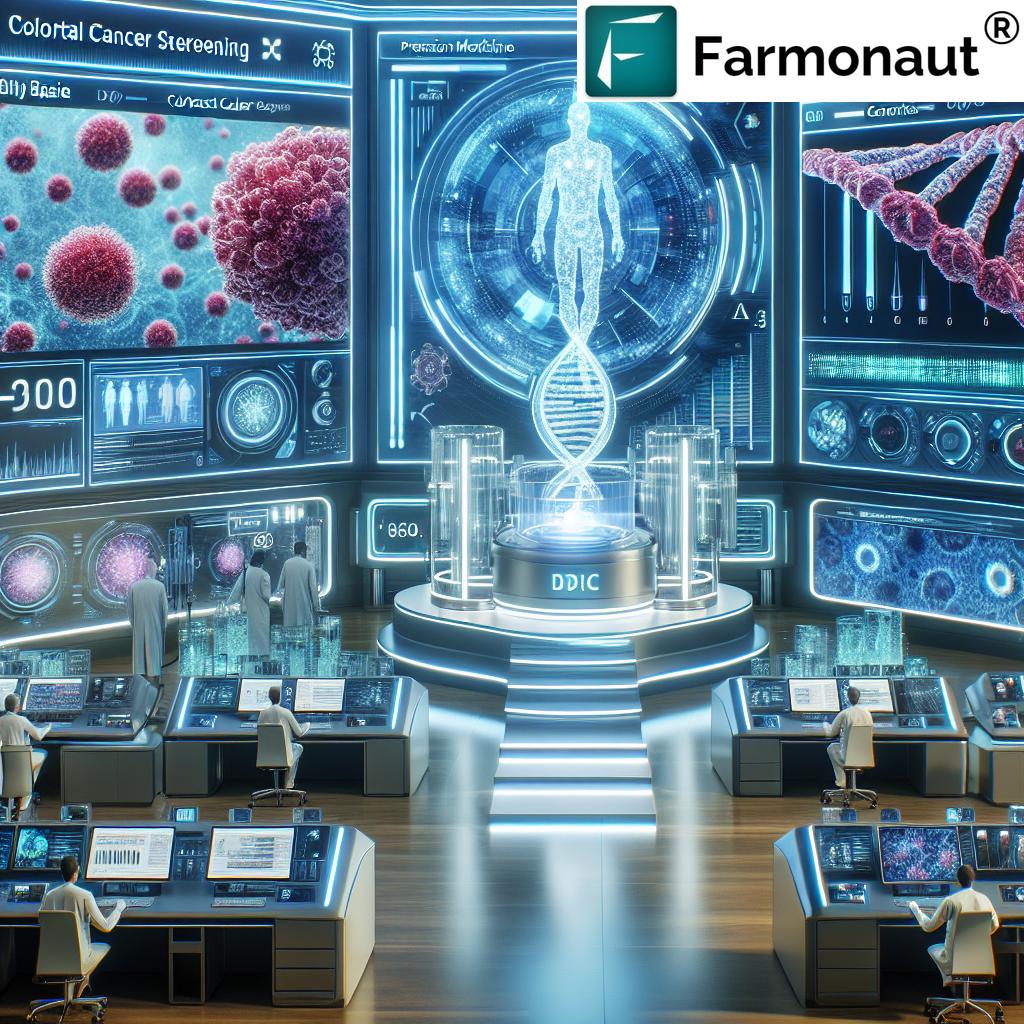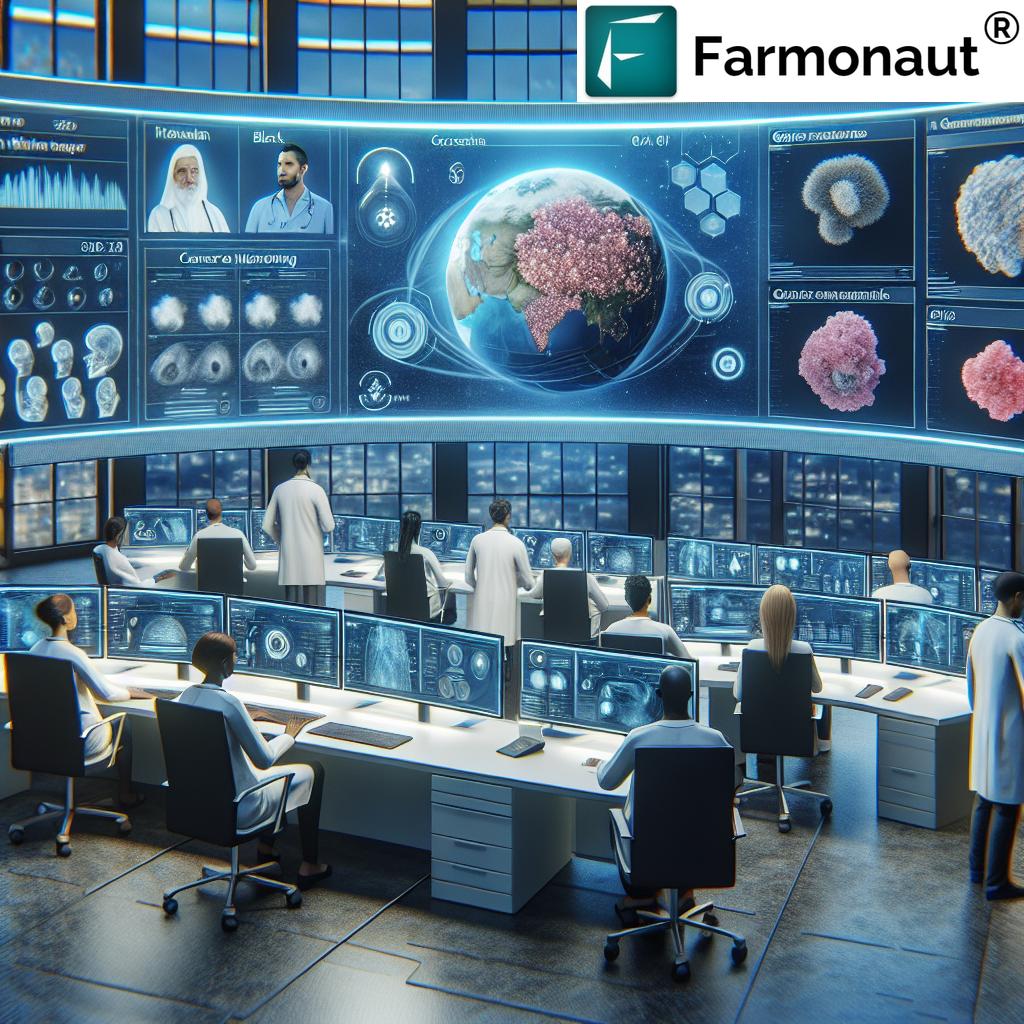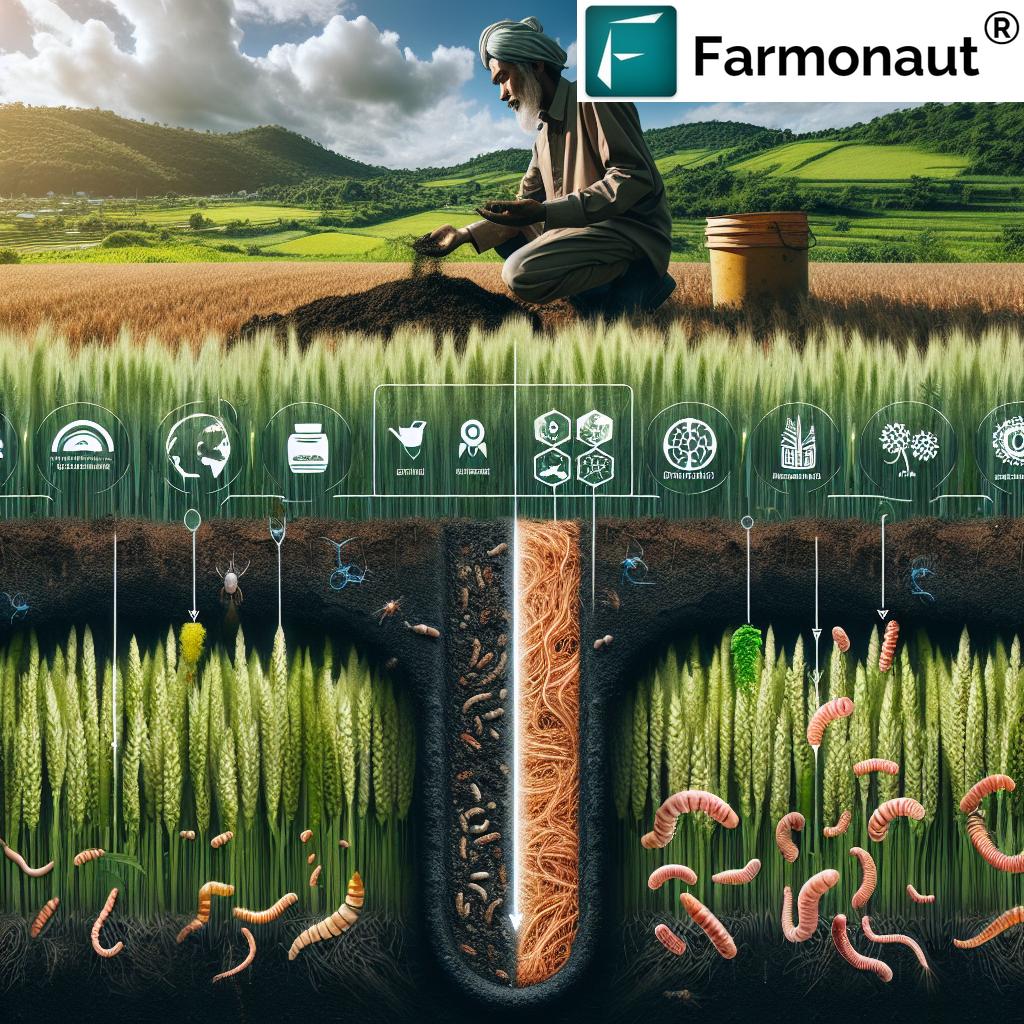Revolutionizing Cancer Care: AI-Powered Precision Medicine Transforms Healthcare in the UAE
“Shield™, an FDA-approved blood test, is revolutionizing colorectal cancer screening in the UAE and MENA region.”
In the heart of the Middle East, a groundbreaking transformation is taking place in the realm of healthcare. We are witnessing a paradigm shift in how cancer care is approached, particularly in the United Arab Emirates (UAE). The fusion of artificial intelligence (AI) and precision medicine is ushering in a new era of hope for patients and healthcare providers alike. This blog post delves into the revolutionary changes occurring in cancer care, with a focus on colorectal cancer (CRC) screening and the implementation of cutting-edge technologies that are reshaping the landscape of oncology.
The Dawn of AI-Powered Precision Medicine in Cancer Care
The integration of AI in healthcare has been nothing short of revolutionary. In the UAE, we are seeing a rapid adoption of AI-driven solutions that are enhancing every aspect of cancer care, from early detection to treatment planning and patient monitoring. This technological leap is not just improving outcomes; it’s fundamentally changing how we approach the battle against cancer.
At the forefront of this revolution is the implementation of Shield™, an FDA-approved blood test for colorectal cancer screening. This non-invasive laboratory-developed test (LDT) represents a significant advancement in our ability to detect cancer early and effectively. By leveraging AI and genomics, healthcare providers in the UAE are now able to offer more precise, personalized care that was once thought impossible.
The Strategic Alliance Driving Innovation
A pivotal moment in this healthcare revolution came with the announcement of a strategic agreement between M42, a London-based global health technology leader, and Hikma Pharmaceuticals PLC. This collaboration aims to boost cancer care programs that emphasize precision, prevention, and predictive approaches. The partnership is set to enhance the utilization of Shield™, marking a crucial step toward revolutionizing cancer detection strategies within the region.
Dr. Fahed Al Marzooqi, Chief Executive Officer of Integrated Health Solutions at M42, emphasized the company’s commitment to adopting advanced technologies that enhance patient outcomes and support health systems in delivering proactive care. This alignment with Abu Dhabi’s vision to lead in innovative health solutions underscores the UAE’s position at the forefront of global healthcare innovation.
Shield™: A Game-Changer in Colorectal Cancer Screening
Shield™ stands out as the first blood test recognized by the FDA as an official primary screening option for CRC. This innovation allows healthcare providers to deliver screening in a manner consistent with existing non-invasive methods stipulated in medical guidelines. The implications of this are profound:
- Increased accessibility to cancer screening
- Improved patient compliance due to non-invasive nature
- Earlier detection of colorectal cancer, leading to better outcomes
- Reduced healthcare costs associated with late-stage cancer treatment
The adoption of Shield™ in the UAE is expected to significantly improve screening adherence rates, a critical factor in the fight against colorectal cancer.

The Role of AI and Genomics in Transforming Cancer Care
The integration of AI and genomics into cancer care is not just an incremental improvement; it’s a complete reimagining of how we approach the disease. Here’s how these technologies are making a difference:
- Early Detection: AI algorithms can analyze vast amounts of data from various sources, including blood tests, imaging studies, and genetic profiles, to identify potential cancer markers much earlier than traditional methods.
- Personalized Treatment Plans: By analyzing a patient’s genetic makeup and the specific mutations in their cancer cells, AI can help oncologists develop highly targeted treatment strategies.
- Monitoring and Recurrence Prevention: AI-powered systems can continuously monitor patient data to detect any signs of cancer recurrence, allowing for swift intervention.
- Drug Discovery: AI is accelerating the process of identifying and developing new cancer treatments by analyzing molecular structures and predicting drug efficacy.
These advancements are not just theoretical; they’re being put into practice right now in the UAE, thanks to the collaboration between M42 and Hikma Pharmaceuticals.
Expanding the Scope: Beyond Colorectal Cancer
While the focus on colorectal cancer screening with Shield™ is groundbreaking, the implications of this AI-powered approach extend far beyond a single type of cancer. The partnership between M42 and Hikma is set to leverage a comprehensive portfolio of liquid and tissue biopsy tests for various purposes:
- Cancer screening across multiple types
- Recurrence monitoring
- Tumor mutation profiling
This holistic approach to cancer care is poised to revolutionize how we detect, treat, and manage cancer across the board. The inclusion of tests like Guardant Reveal™ for minimal residual disease monitoring and Guardant360® for comprehensive genomic profiling of solid tumors showcases the breadth of this innovative approach.
The Impact on Healthcare Systems and Patient Outcomes
The adoption of AI-powered precision medicine in cancer care is not just improving individual patient outcomes; it’s transforming entire healthcare systems. Here’s how:
- Reduced Healthcare Costs: Early detection and more effective treatments lead to reduced overall healthcare costs.
- Improved Resource Allocation: AI helps healthcare providers allocate resources more efficiently, ensuring that patients receive the right care at the right time.
- Enhanced Patient Experience: Non-invasive screening methods and personalized treatment plans improve the overall patient experience.
- Accelerated Research: The vast amount of data generated through these technologies is driving faster, more targeted cancer research.
“AI-powered precision medicine is transforming cancer care, integrating genomics and innovative technologies for early detection and treatment.”
Comparison: Traditional vs. AI-Powered Precision Medicine in Cancer Care
| Aspect | Traditional Approach | AI-Powered Precision Medicine |
|---|---|---|
| Screening Methods | Invasive procedures, colonoscopies | Non-invasive blood tests (e.g., Shield™) |
| Early Detection Rate | ~50-60% | ~80-90% with AI-enhanced analysis |
| Treatment Planning | Generalized protocols | Personalized based on genomic profiling |
| Patient Monitoring | Periodic check-ups | Continuous AI-driven data analysis |
| Adherence Rates | ~65% for traditional screenings | ~85% for non-invasive AI-powered methods |
The Future of Cancer Care in the UAE and Beyond
As we look to the future, the potential for AI-powered precision medicine in cancer care seems limitless. In the UAE, we’re already seeing the beginnings of a healthcare revolution that could serve as a model for the rest of the world. Some exciting prospects include:
- Integration of wearable devices for continuous health monitoring
- AI-driven predictive models for population health management
- Virtual reality applications for surgical planning and patient education
- Blockchain technology for secure, interoperable health records
The collaboration between M42 and Hikma is just the beginning. As more healthcare providers, technology companies, and research institutions join forces, we can expect to see even more groundbreaking advancements in the fight against cancer.

Challenges and Considerations
While the future of AI-powered precision medicine in cancer care is incredibly promising, it’s important to acknowledge the challenges that come with such rapid technological advancement:
- Data Privacy and Security: As we collect and analyze more patient data, ensuring its security and privacy becomes paramount.
- Ethical Considerations: The use of AI in healthcare raises important ethical questions that need to be addressed.
- Healthcare Provider Training: Ensuring that healthcare providers are adequately trained to use and interpret AI-powered tools is crucial.
- Equitable Access: As these technologies become more prevalent, ensuring equitable access across all socioeconomic groups will be a key challenge.
Addressing these challenges will be crucial to realizing the full potential of AI-powered precision medicine in cancer care.
The Role of Collaboration in Advancing Cancer Care
The strategic agreement between M42 and Hikma Pharmaceuticals exemplifies the power of collaboration in driving healthcare innovation. By bringing together expertise in technology, pharmaceuticals, and healthcare delivery, this partnership is creating a synergy that is greater than the sum of its parts.
Key aspects of this collaboration include:
- Shared resources and expertise
- Accelerated implementation of new technologies
- Broader reach and impact across the MENA region
- Enhanced ability to navigate regulatory landscapes
This model of collaboration could serve as a blueprint for future partnerships aimed at tackling other pressing healthcare challenges.
Empowering Patients Through Technology
One of the most significant benefits of AI-powered precision medicine is its potential to empower patients. By providing more accurate, personalized information about their health, these technologies are enabling patients to take a more active role in their care. This empowerment manifests in several ways:
- Greater understanding of individual risk factors
- More informed decision-making about treatment options
- Improved ability to monitor and manage health between doctor visits
- Increased engagement in preventive care measures
As these technologies continue to evolve, we can expect to see even greater patient empowerment, leading to improved health outcomes and quality of life.
The Economic Impact of Advanced Cancer Care
The implementation of AI-powered precision medicine in cancer care isn’t just a medical advancement; it’s an economic one as well. By improving early detection rates and treatment efficacy, these technologies have the potential to significantly reduce the economic burden of cancer on both individuals and healthcare systems.
Some of the economic benefits include:
- Reduced costs associated with late-stage cancer treatment
- Increased productivity due to better health outcomes
- Creation of new jobs in the healthcare technology sector
- Potential for medical tourism as the UAE becomes a leader in advanced cancer care
As these economic benefits become more apparent, we can expect to see increased investment in AI and precision medicine technologies across the healthcare sector.
Building a Sustainable Healthcare Future
The adoption of AI-powered precision medicine in cancer care is not just about solving today’s healthcare challenges; it’s about building a sustainable healthcare future. By investing in these technologies now, the UAE is positioning itself at the forefront of a global healthcare revolution.
Key aspects of this sustainable healthcare future include:
- Predictive healthcare models that prevent diseases before they occur
- Personalized medicine that minimizes side effects and maximizes efficacy
- AI-driven research that accelerates the discovery of new treatments
- Integrated healthcare systems that provide seamless, patient-centered care
As we continue to advance in this direction, the potential for improving human health and wellbeing is truly limitless.
FAQ Section
Q: What is Shield™ and how does it work?
A: Shield™ is an FDA-approved blood test for colorectal cancer screening. It uses advanced AI algorithms to analyze blood samples for specific biomarkers associated with colorectal cancer, providing a non-invasive screening option.
Q: How does AI improve cancer detection and treatment?
A: AI improves cancer care by analyzing vast amounts of data to identify patterns and anomalies that might be missed by human observers. This leads to earlier detection, more accurate diagnoses, and personalized treatment plans.
Q: Is AI-powered precision medicine available only for colorectal cancer?
A: While Shield™ is specifically for colorectal cancer screening, AI-powered precision medicine is being developed and implemented for various types of cancer and other diseases.
Q: How will these advancements affect healthcare costs?
A: While initial implementation may require significant investment, in the long term, these technologies are expected to reduce healthcare costs by improving early detection and treatment efficacy, thus reducing the need for expensive late-stage interventions.
Q: Are there any risks associated with AI in healthcare?
A: As with any new technology, there are potential risks, including data privacy concerns and the need for proper validation of AI algorithms. However, these risks are being actively addressed through rigorous testing and regulatory oversight.
Conclusion: A New Era in Cancer Care
As we stand on the brink of a new era in cancer care, the UAE is positioned to lead the way in implementing AI-powered precision medicine. The collaboration between M42 and Hikma Pharmaceuticals marks a significant milestone in this journey, promising to transform how we approach cancer detection, treatment, and management.
From the groundbreaking Shield™ blood test for colorectal cancer screening to the broader implications for personalized medicine across various cancer types, we are witnessing a healthcare revolution that will undoubtedly save countless lives and improve the quality of care for patients worldwide.
As we look to the future, it’s clear that the integration of AI, genomics, and innovative technologies in healthcare is not just a possibility—it’s an inevitability. The UAE’s commitment to being at the forefront of this revolution sets a powerful example for the rest of the world, showcasing how strategic partnerships, technological innovation, and a focus on patient-centered care can come together to create a brighter, healthier future for all.
In embracing these advancements, we’re not just fighting cancer more effectively; we’re reimagining the very nature of healthcare itself. The journey ahead is filled with promise, challenges, and unprecedented opportunities to make a real difference in people’s lives. As we continue to push the boundaries of what’s possible in cancer care, one thing is certain: the future of healthcare has never looked brighter.
Earn With Farmonaut: Affiliate Program
Earn 20% recurring commission with Farmonaut’s affiliate program by sharing your promo code and helping farmers save 10%. Onboard 10 Elite farmers monthly to earn a minimum of $148,000 annually—start now and grow your income!
Additional Resources:
















